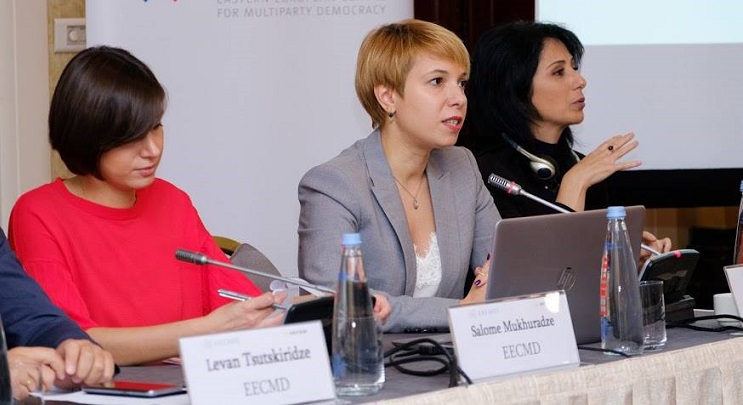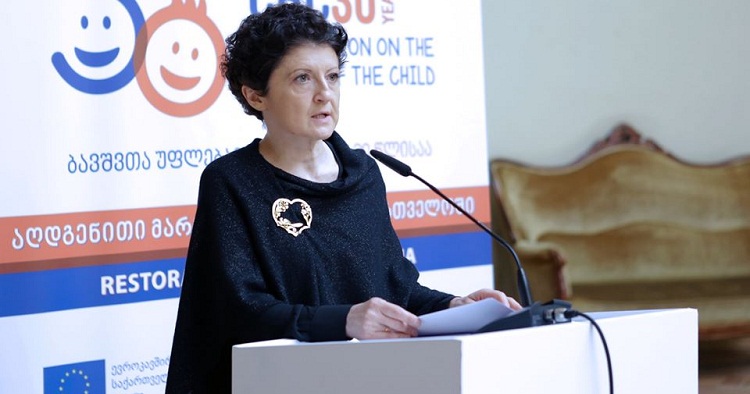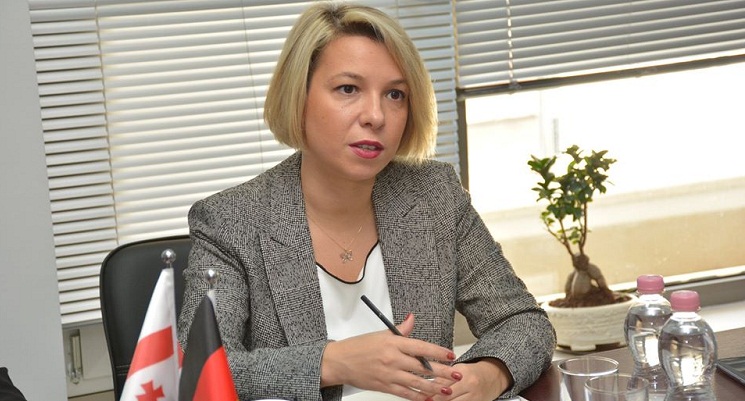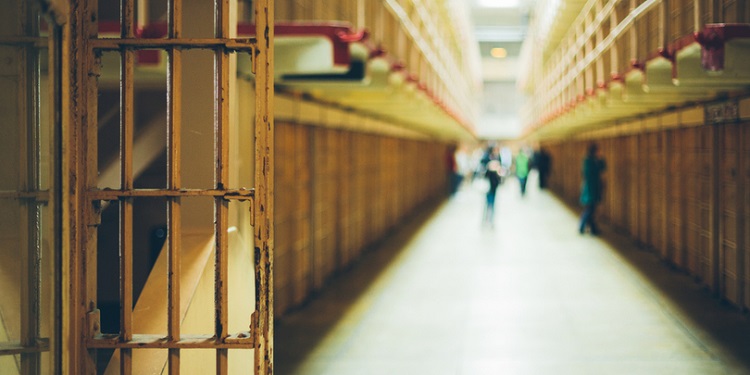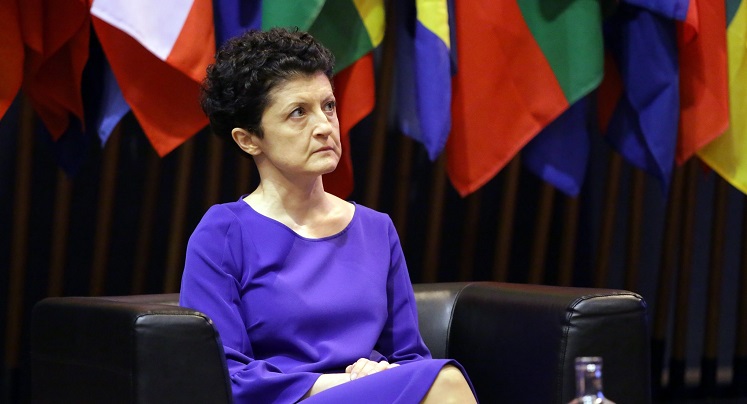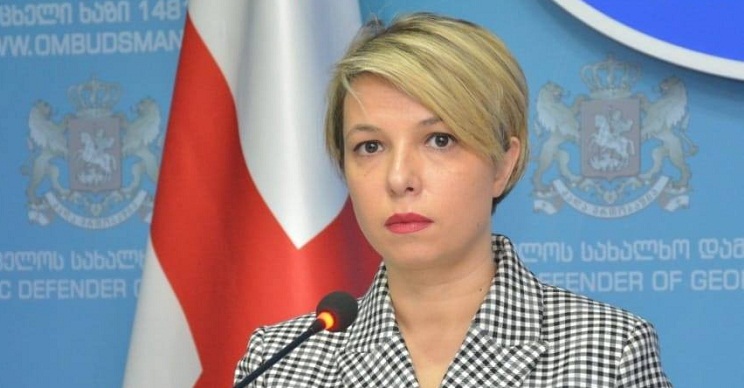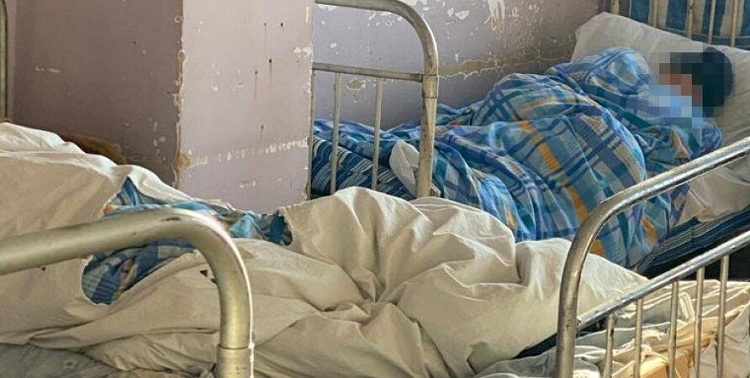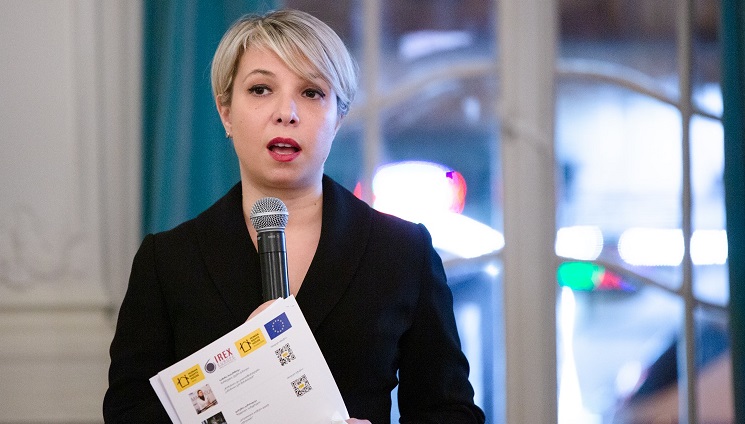Justice Minister, ombudswoman argue while presenting report on prisons

Georgian Justice Minister Tea Tsulukiani (L) and Public Defender Nino Lomjaria (R) have opposed one another in parliament earlier today. Photo: ImediTV/1TV.
Georgian Justice Minister Tea Tsulukiani and Ombudswoman Nino Lomjaria argued with each other in parliament today, during a presentation of Lomjaria’s report on the situation in four prisons of Georgia.
The report says that inmates in #2, #8, #14 and #15 prisons are subjected to violence both from the administration and other inmates.
The report reads that the influence of the “criminal subculture” in prisons, “the informal running of prisons by criminal bosses, so-called supervisors and others with criminal-mentality” still remains high.
Unfortunately, the current order in prisons is mainly based on violence and is very fragile. The kind of order, in the short or long perspective, may place security in prisons, the health and lives of inmates under serious threat,” Lomjaria said.
Tsulukiani stated that Lomjaria’s report was a collection of a “bit of truth, gossiping and non-professionalism”, stating that the Public Defender has refused to mention “huge progress and improvements” ensured in the penitentiary field under the Georgian Dream government since 2012.
 Lomjaria presented the report at Parliament's Human Rights Committee session, where Tsulukiani responded her. Photo: parliament of Georgia press office.
Lomjaria presented the report at Parliament's Human Rights Committee session, where Tsulukiani responded her. Photo: parliament of Georgia press office.
For instance, you have not mentioned the programmes the ministry is carrying out for the resocialization of inmates, for example the involvement of inmates in the data digitization process, or that I initiated the making of an orchard for lifetime inmates in the 8th prison,” Tsulukiani said, accusing Lomjaria of ‘being biased’ and ‘rarely responding’ to violations against state officials, police officers, MPs or others connected with the authorities.
Tsulukiani stated that Lomjaria “has not held even a single meeting with inmates in 2019, while in 2018 she had only four such meetings,” with Lomjaria responding that ‘the Public Defender’s office makes decisions on such visits and it is not the issue a minister to be worried with.’
Tsulukiani said that prisoners “were surprised” by Lomjaria’s statements on ‘criminal subculture’ and they wrote a letter to Lomjaria in December 2019.
When a public defender speaks about the existence of influence of criminals in prisons, she must demand an investigation and request the involvement of the Prosecutor’s Office. I did this instead of you and sent your report to the Prosecutor’s Office [to be studied],” Tsulukiani told Lomjaria, expressing hope that “you will manage to name the so-called criminal bosses or supervisors if summoned for interrogation.”
The Ombudswoman’s report was based on monitoring carried out in prisons in the summer of 2019.
 Tweet
Tweet  Share
Share

